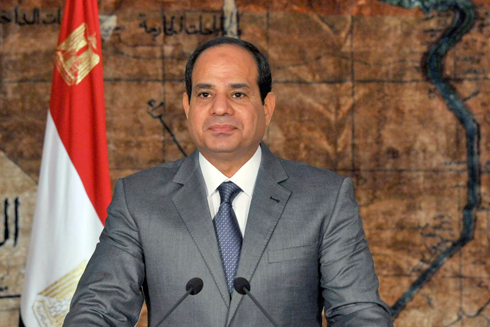
Egypt’s President Sisi
Egypt has promised the IMF it will apply the most far-reaching reforms in the modern era as part of the deal underpinning the fund’s plan announced last week to lend Cairo the equivalent of $12bn.
On 11 August, the IMF announced that a staff-level agreement had been reached for a three-year extended fund facility worth the equivalent of $12bn. The agreement is subject to approval by the IMF’s executive board. This is expected within the next month.
But it is likely the deal with face critical scrutiny in parliament.
The IMF said the Egyptian government’s fiscal policy “will be anchored to placing public debt on a clearly declining path toward more sustainable levels”. This involves reducing government debt to 88 per cent of GDP in 2018/19 from 98 per cent in 2015/16. The adjustment will be achieved by increasing revenue, including by introducing VAT, and cutting spending. This will include further energy subsidy cuts.
The IMF said that government spending will be redirected towards infrastructure, health, education and social protection.
“The social protection measures will preserve or increase support for insurance and medicine for the poor, subsidies for infant milk and medicine for children, health insurance for young children and female primary providers, and vocational training for youth,” the IMF said in a statement. “The government will also develop a plan to enhance the school meals program. Priority will also be given to investment in public infrastructure.”
The IMF said Egypt plans to move to a flexible exchange rate regime. Action will be taken to improve the business environment.
“We will also encourage other multilateral agencies and countries to support Egypt,” the IMF said. “We have talked to our colleagues in the World Bank and the African Development Bank and they are willing to help. It would also be very helpful for Egypt’s bilateral partners to step forward at this critical time.”
Successive Egyptian governments have avoided cutting subsidies. It estimated tens of millions rely on state-subsidised bread.
Speaking at the opening of a factory in Alexandria, President Sisi said that experience would not deter him from pushing through painful reforms.
“The first effort at reform came in 1977, and when it was not accepted by the citizens, all the governments hesitated to make reform efforts, afraid of the reactions,” Sisi said. “It is not only you who will judge me. God will also judge and so will history … All the difficult decisions that many hesitated to take over many years, that they were afraid to take, I will not hesitate to take for one second.”
For full coverage of Middle East business, see MEED